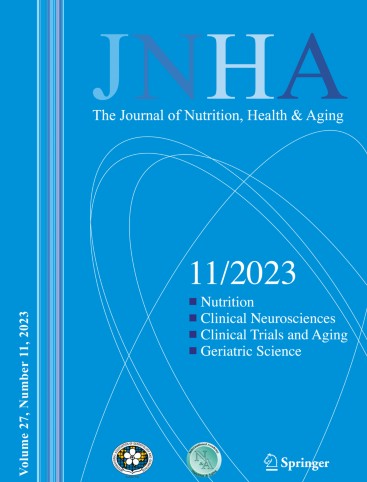健康成人鸡蛋摄入与认知功能:文献系统综述。
IF 4
3区 医学
Q1 GERIATRICS & GERONTOLOGY
引用次数: 0
摘要
背景:认知能力下降是一个日益严重的公共卫生问题,特别是在老龄化人口中。鸡蛋是一种广泛食用的营养丰富的食物,含有胆碱、磷脂、色氨酸和omega-3脂肪酸,它们分别支持记忆、注意力和神经发生等认知过程。虽然这些单独的营养素在补充研究中已经证明有好处,但食用全蛋对认知的影响还没有得到很好的证实。本系统综述旨在评估健康成人全蛋消费与认知功能之间的关系。方法:系统检索Medline、Embase、CINAHL Plus、SCOPUS和PsychInfo 5个电子数据库,检索时间为数据库建立至2025年2月。如果研究调查了健康成年人的全蛋摄入量与认知结果的关系,则将其纳入研究。使用适合研究设计的工具评估偏倚风险。由于研究方法的异质性,结果是叙述性的。认知结果被分为多个领域,包括全球认知功能、记忆、执行功能、语言、处理速度和痴呆风险。结果:11项研究符合纳入标准:1项干预前研究、6项前瞻性队列研究、3项横断面研究和1项病例对照研究。研究人群主要是老年人,包括38,000名参与者。两项研究报告说,适量吃鸡蛋(每天大约0.5-1个鸡蛋)可以降低患痴呆症或认知障碍的风险,而一项研究发现,高摄入量(每天超过1个鸡蛋)会增加患痴呆症或认知障碍的风险。几项研究表明,适度而不是高摄入量的鸡蛋可以改善记忆力、语言流畅性或处理速度。前后研究报告说,在八周每天吃鸡蛋(每天2个鸡蛋)后,反应时间有所改善。暴露测量和认知测试方法的异质性限制了研究间的直接比较。讨论:适量食用全蛋可能与健康成人认知结果的改善有关,包括降低痴呆风险和改善记忆表现。然而,由于研究设计、饮食评估和认知测试的差异,研究结果是不一致的和有限的。需要进一步的控制良好的干预研究来确定最佳摄入水平,探索机制,并评估鸡蛋是否可以有意地纳入饮食策略以支持认知衰老。(普洛斯彼罗注册:408532)。本文章由计算机程序翻译,如有差异,请以英文原文为准。
Egg intake and cognitive function in healthy adults: A systematic review of the literature
Background
Cognitive decline is a growing public health concern, particularly in aging populations. Eggs are a widely consumed, nutrient-dense food containing choline, phospholipids, tryptophan, and omega-3 fatty acids, which individually support cognitive processes such as memory, attention, and neurogenesis. While these individual nutrients have demonstrated benefits in supplementation studies, the cognitive effects of whole egg consumption are not well established. This systematic review aimed to evaluate the association between whole egg consumption and cognitive function in healthy adults.
Methods
A systematic search of five electronic databases (Medline, Embase, CINAHL Plus, SCOPUS, and PsychInfo) was conducted from database inception through February 2025. Studies were included if they investigated whole egg intake in relation to cognitive outcomes in healthy adults. Risk of bias was assessed using tools appropriate to study design. Due to heterogeneity in study methods, outcomes were synthesised narratively. Cognitive outcomes were categorised into domains including global cognitive function, memory, executive function, language, processing speed, and dementia risk.
Results
Eleven studies met the inclusion criteria: one pre-post intervention study, six prospective cohort studies, three cross-sectional studies, and one case-control study. Study populations were predominantly older adults and included >38,000 participants. Two studies reported a reduced risk of dementia or cognitive impairment associated with moderate egg consumption (approximately 0.5–1 egg per day), while one study found increased risk at high intake levels (Over 1 egg per day). Several studies showed improvements in memory, verbal fluency, or processing speed with moderate—but not high—egg intake. The pre-post study reported improved reaction time following eight weeks of daily egg consumption (2 eggs per day). Heterogeneity in exposure measurement and cognitive testing methods limited direct comparisons across studies.
Discussion
Moderate whole egg consumption may be associated with improvements in cognitive outcomes in healthy adults, including reduced dementia risk and better memory performance. However, findings are inconsistent and limited by differences in study design, dietary assessment, and cognitive testing. Further well-controlled intervention studies are needed to determine optimal intake levels, explore mechanisms, and assess whether eggs can be integrated meaningfully into dietary strategies to support cognitive aging. (PROSPERO registration: 408532).
求助全文
通过发布文献求助,成功后即可免费获取论文全文。
去求助
来源期刊
CiteScore
7.80
自引率
3.40%
发文量
136
审稿时长
4-8 weeks
期刊介绍:
There is increasing scientific and clinical interest in the interactions of nutrition and health as part of the aging process. This interest is due to the important role that nutrition plays throughout the life span. This role affects the growth and development of the body during childhood, affects the risk of acute and chronic diseases, the maintenance of physiological processes and the biological process of aging. A major aim of "The Journal of Nutrition, Health & Aging" is to contribute to the improvement of knowledge regarding the relationships between nutrition and the aging process from birth to old age.

 求助内容:
求助内容: 应助结果提醒方式:
应助结果提醒方式:


